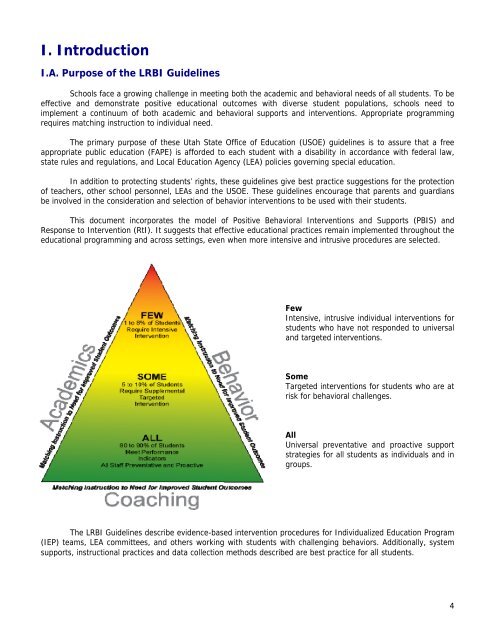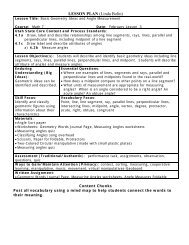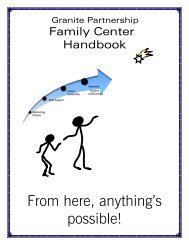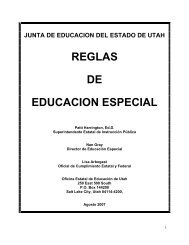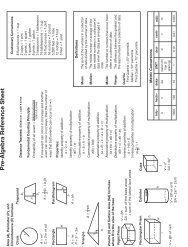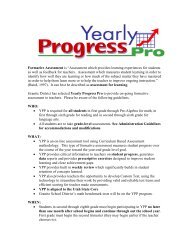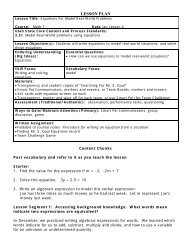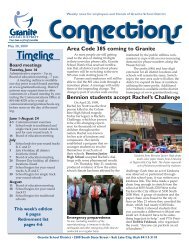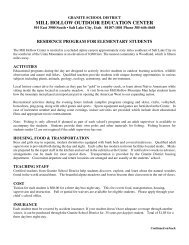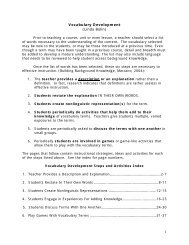Utah's Least Restrictive Behavioral Interventions Guidelines
Utah's Least Restrictive Behavioral Interventions Guidelines
Utah's Least Restrictive Behavioral Interventions Guidelines
You also want an ePaper? Increase the reach of your titles
YUMPU automatically turns print PDFs into web optimized ePapers that Google loves.
I. Introduction<br />
I.A. Purpose of the LRBI <strong>Guidelines</strong><br />
Schools face a growing challenge in meeting both the academic and behavioral needs of all students. To be<br />
effective and demonstrate positive educational outcomes with diverse student populations, schools need to<br />
implement a continuum of both academic and behavioral supports and interventions. Appropriate programming<br />
requires matching instruction to individual need.<br />
The primary purpose of these Utah State Office of Education (USOE) guidelines is to assure that a free<br />
appropriate public education (FAPE) is afforded to each student with a disability in accordance with federal law,<br />
state rules and regulations, and Local Education Agency (LEA) policies governing special education.<br />
In addition to protecting students’ rights, these guidelines give best practice suggestions for the protection<br />
of teachers, other school personnel, LEAs and the USOE. These guidelines encourage that parents and guardians<br />
be involved in the consideration and selection of behavior interventions to be used with their students.<br />
This document incorporates the model of Positive <strong>Behavioral</strong> <strong>Interventions</strong> and Supports (PBIS) and<br />
Response to Intervention (RtI). It suggests that effective educational practices remain implemented throughout the<br />
educational programming and across settings, even when more intensive and intrusive procedures are selected.<br />
Few<br />
Intensive, intrusive individual interventions for<br />
students who have not responded to universal<br />
and targeted interventions.<br />
Some<br />
Targeted interventions for students who are at<br />
risk for behavioral challenges.<br />
All<br />
Universal preventative and proactive support<br />
strategies for all students as individuals and in<br />
groups.<br />
The LRBI <strong>Guidelines</strong> describe evidence-based intervention procedures for Individualized Education Program<br />
(IEP) teams, LEA committees, and others working with students with challenging behaviors. Additionally, system<br />
supports, instructional practices and data collection methods described are best practice for all students.<br />
4


